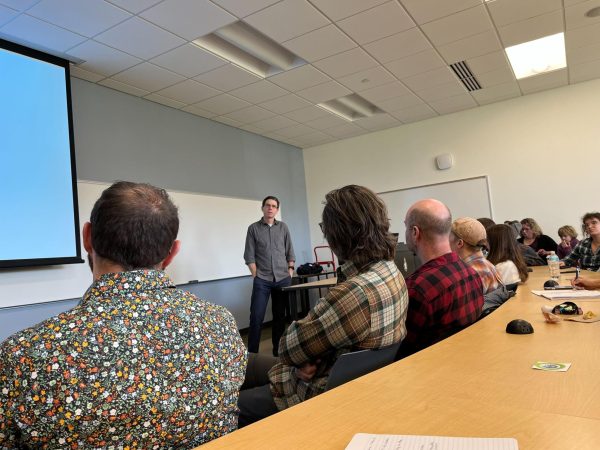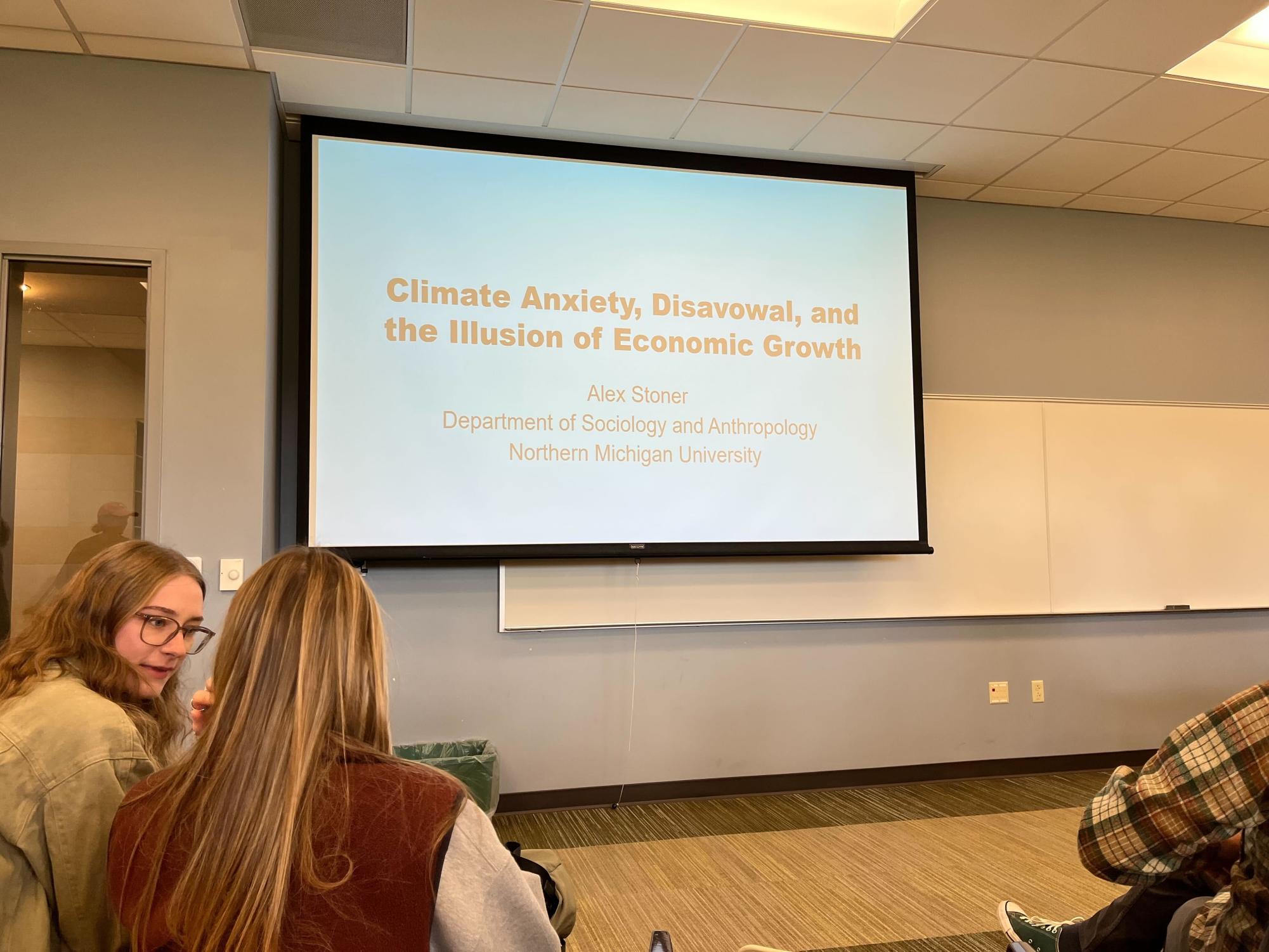On Nov. 8, Northern Michigan University students and members of the Marquette community filled up a classroom to hear Dr. Alexander Stoner speak on his research surrounding climate anxiety, disavowal and the illusion of economic growth.
Dr. Stoner is an associate professor of sociology and department head of sociology and anthropology at NMU. His research focuses on the relationship between modern capitalist society and the natural environment. He explores this further by exploring the relationship between political-economic drivers of environmental problems and the societal responses to them. He has published many of his findings through journals and in his book, “Freedom in the Anthropocene: Twentieth-Century Helplessness in the Face of Climate Change.”

At the start of the event, Dr. Stoner showed his audience a video of a woman surviving a wildfire in California. The aftermath of seeing the video was a general feeling of shock, worry and fear within the audience.
It was a starter for his conversation on his research on anxiety and denial, particularly disavowal, towards climate change.
Climate disavowal is a type of denial that acknowledges the reality of climate change but represses the reality of it – ultimately trying to avoid the anxiety that comes with climate change.
“Climate disavowal is essentially a way for individuals to get off the hook without fully acknowledging and dealing with reality. However, as a defense mechanism for climate anxiety, this can only be effective temporarily, if it’s effective at all, and it’s a really bad strategy in the long term, because the causes of climate anxiety are never confronted,” Dr. Stoner said.
He explained further that climate disavowal creates an illusion of economic growth, which can be seen as limitless.
“The problem is that we know limitless growth on a finite planet is impossible. This sort of a situation tends to make people feel helpless, and we know that feelings of helplessness exacerbate anxiety and can lead to despair,” Dr. Stoner said. “When anxiety becomes too much to bear our thinking often becomes irrational, and denial is also the basic defense mechanism that is used in an attempt to reduce that anxiety.”
This may cause people to engage in pseudo activities, another defense mechanism, which temporarily alleviates the mental discomfort that comes with climate anxiety. An example of a pseudo activity is market environmentalism, which includes buying green products or doing curbside recycling. These activities can make people feel better about themselves, as they alleviate the anxiety of the climate crisis through the idea that they are helping lessen its impact. But there is a flaw in this thinking.
“The problem with pseudo activities is that the root causes of the problem are never addressed, and in this sense, we’re prevented from fully acknowledging the reality of the situation,” Dr. Stoner said. “Confronting and working through those difficult and negative emotions is a necessary precondition [to] more effective and meaningful action on climate change.”
This led him to policy implications based on his research. When it comes to dealing with this anxiety and denial towards climate change, Dr. Stoner puts forth the idea that people need to acknowledge the emotions that come with them.
“Historically, climate policies and communications have a chance to minimize emotional difficulties for people, but I think this is a mistake, because avoiding those difficult emotions, avoiding anxieties around climate change, doesn’t make them go away. Rather, it tends to facilitate pathological defenses such as this eval, which I’ve argued only exacerbates the problem,” Dr. Stoner said. “The ability to describe and elicit climate emotion allows them to become part of the climate discourse.”
For those who are interested in learning about climate and the environment, visit the Hub for Climate@Noon, a lecture series on climate change in our region.








